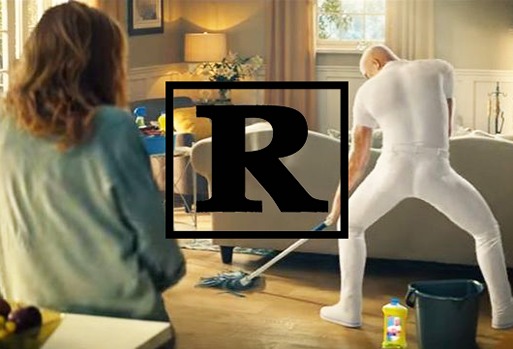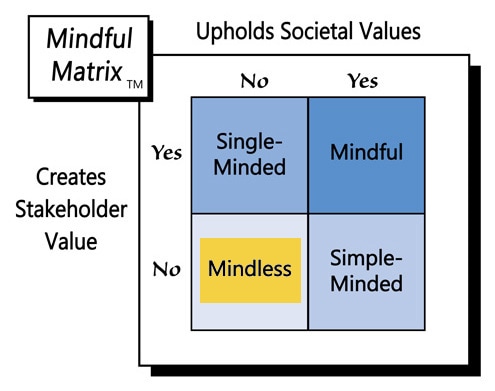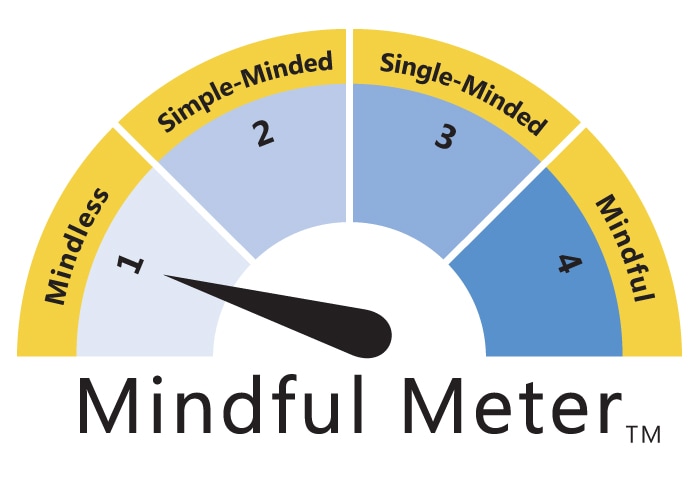The latest Super Bowl contained many memorable commercials, but the Mr. Clean spot may be the most difficult to forget. In the ad, a wanton woman imagines an unusually buff animated spokesman strutting about her home in a skin-tight white t-shirt and form-fitting pants. Carefully cropped camera shots capture the brand icon flexing his biceps and swaying his hips to the sound of a sexy R & B song with the lyrics “Got what you want, got what you need. Be your dreamboat be your fantasy. I'll be your ecstasy.”
Throughout the ad, the actress leers lustfully and dances suggestively with the cartoon character, who gives new meaning to the term “all-purpose cleaner.” Then suddenly she comes back to reality when her husband/partner emerges from the animation asking, “Sara, Sara? Clean enough?” By that time her libido has gotten the best of her and she tackles him over the back of the couch in a lip-locked embrace.
Like the spot itself, on-line reaction to the ad has been very ‘animated.’ On YouTube, one reviewer feigned worry, “I have no doubt my girl will leave me for Mr. Clean,” while another exclaimed, “that moment where you actually want to watch an ad.” Overall, reaction to the promotion was positive: So far, almost 28,000 YouTube viewers have given it a thumbs up, and only about 3,100 have voted it down.
It’s hard to say whether the ad will increase sales of the cleaning solution, but there is potential. Unlike many other Super Bowl spots that left us asking “What was that for?”, the Mr. Clean commercial was unmistakably tied to cleaning, which was a step in the right direction. A shopper in a grocery store, scanning the shelves for cleaning supplies, might at least think, “Mr. Clean, I’ve heard of that.”
So, if the majority of people like the Mr. Clean commercial, and there’s potential that the ad will increase sales, Procter & Gamble (parent of the brand) must have made a good creative decision, right? Not so fast.
First, it will be interesting to see the long-term impact that a sexy Mr. Clean has on the brand. P&G is a diverse corporation whose holdings include the likes of Bounty, Charmin, Crest, Dawn, Luvs, Oral-B, Pampers, Swiffer, Tide, and Vicks. Other than a couple of unusual exceptions like Old Spice, which targets young males, most P&G brands are wholesome and family-oriented—an image that the new Mr. Clean doesn’t uphold. P&G as a whole is protected, however, because it doesn’t place everything under the same corporate label, like Apple and Nike do. Instead, P&G uses individual branding, which helps separate people’s perceptions of each P&G product.
In any case, once a company uses sex to sell, it’s hard to reestablish a wholesome image—just ask GoDaddy, which several years later is still remembered for its series of sexually explicit Super Bowl ads. More specifically, will we ever be able to think of the Mr. Clean character the same way again? He’s gone from being an unemotional symbol of practical cleaning strength to a sexy ‘player’ who will potentially put the moves on any woman he desires.
Such sexualized branding is not family-friendly. Although, children aren’t the target market for cleaning supplies, there are spillover effects, especially when the advertising occurs in widely-viewed broadcasts, like the Super Bowl. Also, the ad in question ironically inferred that women like men who clean, but it’s unlikely that most men will be captivated by Mr. Clean’s new image. At least I’m not, and I’m a man who cleans.
Also not family-friendly is the ad’s promotion of unhealthy sexual fantasies. It’s always dangerous to substitute desire for a husband or wife with someone or something else. “But wait a minute,” you may be thinking, “He’s just a cartoon. It’s supposed to be funny.” That’s true, yet there’s an anatomical realism and life-likeness to this Mr. Clean that makes the lusting much more legitimate than if it were for, say, the Michelin Man.
Similarly, the ad tries to sneak-in sex by having a woman ogle a man. More people would likely be put-off if the roles were reversed and it were a man mentally undressing a woman. The act of sexual objectification should be offensive no matter who’s doing it. Yes, it can seem kind of funny when women objectify men (e.g., “Look at that set of guns”), because it usually doesn’t happen that way. However, the acceptance of such female-male objectification desensitizes people to all forms of sexual objectification, and makes the more common male-female kind seem okay.
A final irony involves the perceptual disconnect between a product that aims to make things clean, and a spokes-character that acts ‘dirty.’ Granted, his actions aren’t dirty in a grease and grime sense, but they’re still easily perceived as impure and adulterated. That’s close enough to being a direct contradiction that most brands wouldn’t want to risk the association.
As mentioned above, this Mr. Clean commercial might help stimulate short-term sales. It’s doubtful, however, that the sexualization of the animated character will produce long-term benefits for the brand, even as it puts a stain on society. For these reasons, sexy Mr. Clean is a case of “Mindless Marketing.”
Learn more about the Mindful Matrix and Mindful Meter.
Check out Mindful Marketing Ads and Vote your Mind!




 RSS Feed
RSS Feed